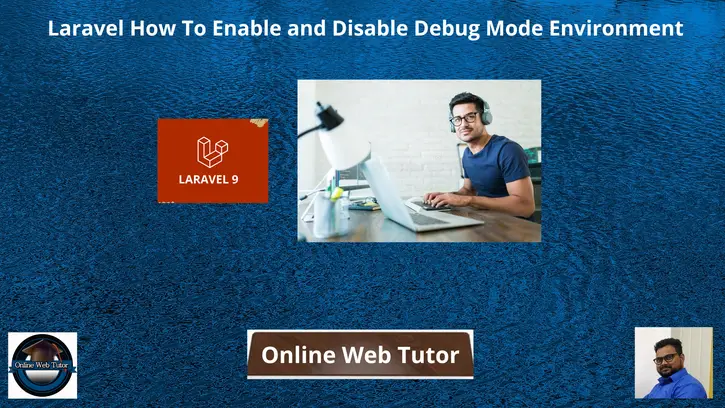Inside this article we will see the concept i.e Laravel How To Enable and Disable Debug Mode Environment. Article contains the classified information about enabling and disabling debugger model of laravel application.
If you are looking for a solution i.e How to enable and disable Laravel debugger then this article will help you a lot for this. Tutorial is super easy to understand and implement it in your code as well.
Read More: How To Work with Javascript Web Notification API Tutorial
Let’s get started.
Laravel Installation
Open terminal and run this command to create a laravel project.
composer create-project laravel/laravel myblogIt will create a project folder with name myblog inside your local system.
To start the development server of laravel –
php artisan serveURL: http://127.0.0.1:8000
Assuming laravel already installed inside your system.
Enable & Disable Debugger Mode
You will see .env file inside application. Open it.
Search for APP_DEBUG. By default you will see the value of it. It should be true.
Enable Debug Mode
APP_DEBUG=trueDisable Debug Mode
APP_DEBUG=falseRead More: How To Get Time Difference in Minutes in PHP Tutorial
Internally, application uses this environment variable inside app.php. You will find this file inside /config folder.
..
'debug' => (bool) env('APP_DEBUG', false),
..If APP_DEBUG suppose not available inside .env file then false will be the default application mode.
We hope this article helped you to learn Laravel How To Enable and Disable Debug Mode Environment in a very detailed way.
Online Web Tutor invites you to try Skillshike! Learn CakePHP, Laravel, CodeIgniter, Node Js, MySQL, Authentication, RESTful Web Services, etc into a depth level. Master the Coding Skills to Become an Expert in PHP Web Development. So, Search your favourite course and enroll now.
If you liked this article, then please subscribe to our YouTube Channel for PHP & it’s framework, WordPress, Node Js video tutorials. You can also find us on Twitter and Facebook.
